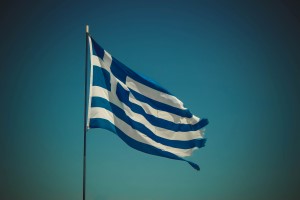Akazoo Settlement with SEC Offers Lessons on Risks and Enforcement in SPAC Transactions

The Securities and Exchange Commission this week secured court approval of a $38.8 million settlement with music streaming business Akazoo S.A. – or, as the SEC pointedly describes the company, “a purported music streaming business,” because the company that publicly claimed to have millions of paying customers, in fact, had none. The settlement marks the second public announcement of an SEC recovery in an action alleging investor fraud in a go-public transaction by a special purpose acquisition company, or SPAC.
The Akazoo settlement illustrates many of the risks of SPAC transactions, as well as the importance of SEC enforcement in this area. Investors in Akazoo and Modern Media Acquisition Corp, the SPAC that acquired Akazoo in 2019, undeniably lost funds. However, when the Akazoo fraud came to light in 2019 the SEC quickly filed an emergency action and secured an asset freeze. The SEC’s emergency action followed a short seller’s report on Akazoo, which highlights an additional important fact: the markets, and the SEC, need knowledgeable individuals, be they insiders or outsiders, to come forward with information about securities fraud. The SEC Whistleblower Reward Program offers procedures and financial incentives for those with information about financial and investment fraud to report it confidentially and anonymously.
SPACs and SEC Enforcement
As we have previously written, SPACs, or “blank-check” companies, go public as empty shells, attracting investors with a promise that they will find a privately-held company to acquire. Such an acquisition, or reverse merger, allows the target company to become a public company without having to perform its own initial public offering. In this way, the target company can avoid regulatory and market scrutiny. While the SPAC tells investors that it has performed due diligence on the target company, the process may fall short, particularly as it is lead by self-interested SPAC managers and investors who have access to information that the market as a whole does not.
The SEC has taken notice of the wave of SPAC transactions. In 2020, then-SEC Chair Jay Clayton commented that SPAC transactions “come[] down to a question about disclosure and transparency and whether investors are getting all the information they need.” In May, 2021, the SEC issued an updated Investor Bulletin to inform potential investors about SPACs and how to evaluate them.
These SEC statements and bulletins were followed in July 2021 with the announcement of a settlement in an SEC enforcement proceeding against SPAC Stable Road Acquisition Company and its proposed merger target Momentus Inc. The companies, and related individuals, agreed to pay a total of $8 million to resolve charges of providing misleading information in public filings about the proposed merger. SEC Chair Gary Gensler commented on the settlement, saying that it “illustrate[d] risks inherent to SPAC transactions, as those who stand to earn significant profits from a SPAC merger may conduct inadequate due diligence and mislead investors. Stable Road, a SPAC, and its merger target, Momentus, both misled the investing public. The fact that Momentus lied to Stable Road does not absolve Stable Road of its failure to undertake adequate due diligence to protect shareholders.”
The Akazoo Fraud and its Collapse
 According to the SEC’s complaint, Modern Media Acquisition Corp. (“MMAC”) raised over $200 million in a 2017 public offering, which it was to hold in trust until it effectuated a business combination, which it told investors would happen within a specified time period. That time period was extended on multiple occasions, and with each extension more shareholders redeemed their investments, a mechanism common in SPACs. In fact, these redemptions depleted nearly all of MMAC’s funds, leaving it with only $14.2 million and unable to complete an acquisition. So, MMAC raised $47 million in a concurrent “private investment in a public company,” or PIPE. With the infusion of funds from the PIPE, as well as the remaining funds from its public offering, MMAC acquired Akazoo in 2019.
According to the SEC’s complaint, Modern Media Acquisition Corp. (“MMAC”) raised over $200 million in a 2017 public offering, which it was to hold in trust until it effectuated a business combination, which it told investors would happen within a specified time period. That time period was extended on multiple occasions, and with each extension more shareholders redeemed their investments, a mechanism common in SPACs. In fact, these redemptions depleted nearly all of MMAC’s funds, leaving it with only $14.2 million and unable to complete an acquisition. So, MMAC raised $47 million in a concurrent “private investment in a public company,” or PIPE. With the infusion of funds from the PIPE, as well as the remaining funds from its public offering, MMAC acquired Akazoo in 2019.
Akazoo, originally formed in 2010 and based in Greece, offered a subscription-based online music streaming service. At the time of the merger with MMAC, Akazoo claimed to operate in 25 countries, with nearly four million paying subscribers, nearly 40 million registered users, and over 100 million Euros in 2018 revenue. MMAC used these claims in soliciting its shareholders’ approval of the merger and in soliciting investors for the PIPE offering. The MMAC acquisition of Akazoo was finalized in September 2019, securing nearly $55 million for Akazoo, which then begin publicly trading on the NASDAQ.
Akazoo traded for eight months, during which time it also filed reports with the SEC repeating its claims of success, revenue, and subscriber growth. On April 20, 2020, the hedge fund Quintessential Capital Management, a short seller, released a report detailing its research and conclusions that Akazoo was an “accounting scheme” that “profoundly overstated” its users and revenue, including through recording sham “round-trip” transactions with related-party shell companies. According the QCM, the company had phony customer reviews, negligible internet traffic, no app downloads, and was shedding employees and offices.
One month later, Akazoo filed a Form 6-K with the SEC reporting on the results of an internal investigation that concluded the company was “a complete sham.” Akazoo had only negligible actual revenue and subscribers for years, and its historical financial statements were materially false and misleading. Its management team, the report concluded, had “materially misrepresented Akazoo’s business, operations, and financial results as part of a multi-year fraud.”
Various private shareholder actions had been filed shortly after the QCM report was released. The SEC filed its complaint on September 30, 2020, and stipulated with Akazoo for a freeze on its remaining $31.5 million in cash and other assets. In April 2021, both the shareholder class actions and the SEC action were settled in principle. This week’s order in the SEC action fully resolves the SEC litigation. The $38.8 million disgorgement settlement will be deemed satisfied by the company’s payment of $35 million to the investor victims through the settlements of the private class action lawsuits, with settlement funds coming from Akazoo’s remaining assets and from liability insurers. Litigation is continuing against certain individuals and other parties, and this month the United Kingdom’s Financial Reporting Council has announced an investigation into Crowe UK Ltd, which audited Akazoo’s financial statements from 2016-2018 (Crowe has previously faced SEC liability for audit failures related to another company).
Lessons from Akazoo
Many frauds leave victims and government enforcement agencies with little to recover. The SEC’s ability to secure an asset freeze in Akazoo was critical to preserving assets for the benefit of injured investors.
It may seem remarkable that a short selling firm with no inside information, and a board-appointed investigation committee given one month to work, were able to reveal and confirm that Akazoo was a multi-year fraud, when the due diligence of investors and sponsors of the Akazoo-MMAC merger seem to have failed in finding such fraud just a few months earlier. As said above, investors in SPACs rely on the due diligence of SPAC management regarding the acquisition target. And, SPAC sponsors and managers have their own interests in the transaction. In most cases, they also have equity in the SPAC, acquired on favorable terms, and, as a result, their benefits from the SPAC’s completion of a business combination can differ greatly from other shareholders, giving them different incentives to complete a transaction.
The Akazoo settlement, and the earlier Stable Road/Momentus settlement, make clear that SPAC investors may not be getting the information they need – and that the SEC wants to hear about it. Individuals with information about fraud in SPACs and SPAC acquisitions may be eligible to file an SEC whistleblower submission, and receive a portion of any fine imposed by the SEC. Whistleblowers do not need to be U.S. citizens, and they do not need to be insiders. SEC whistleblower tips can be based on independent knowledge or independent evaluation of publicly-available information.
Read More:
- The SPAC Bubble Continues, and all the Fraud Concerns Remain
- A Company about Nothing: SPACs and Fraud
- Financial & Investment Fraud
- The SEC Whistleblower Program
- The Constantine Cannon Whistleblower Team
- Contact us for a Confidential Consultation
Tagged in: Financial and Investment Fraud, Misrepresentations, SEC Whistleblower Reward Program, Securities Fraud,